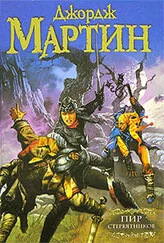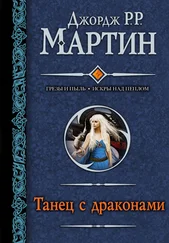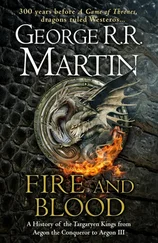It was from her that Lord Oakenfist learned that Dorne had joined the Daughters’ War, making alliance with Tyrosh and Lys against Racallio Ryndoon…and it was at her court at Sunspear, during the Maiden’s Day feast (the very day that a thousand maidens were parading before Aegon III in King’s Landing), that his lordship was approached by a certain Drazenko Rogare, one of the envoys that Lys had sent to Aliandra’s court, who begged a private word. Curious, Lord Alyn agreed to listen, and the two men stepped out into the yard, where Drazenko leaned so close that his lordship said, “I feared he meant to kiss me.” Instead he whispered something in the admiral’s ear, a secret that changed the course of Westerosi history. The next day, Lord Velaryon returned to Lady Baela and gave the command to raise sail…for Lys.
His reasons, and what befell him in the Free City, we shall reveal in due time, but for the nonce let us turn our gaze back on King’s Landing. Hope and good feeling reigned over the Red Keep as the new year dawned. Though younger than her predecessor, Queen Daenaera was a happier child, and her sunny nature did much to lighten the king’s gloom…for a while, at the least. Aegon III was seen about the court more often than had been his wont, and even left the castle on three occasions to show his bride such sights as the city offered (though he refused to take her to the Dragonpit, where Lady Rhaena’s young dragon, Morning, made her lair). His Grace seemed to take a new interest in his studies, and Mushroom was oft summoned to entertain the king and queen at supper (“The sound of the queen’s laughter was like music to this fool, so sweet that even the king was known to smile”). Even Gareth Long, the Red Keep’s despised master-at-arms, made note of a change. “We no longer have to beat the bastard boy as often as before,” he told the Hand. “The boy has never lacked for strength nor speed. Now at last he is showing some modicum of skill.”
The young king’s new interest in the world even extended to the rule of his kingdom. Aegon III began to attend the council. Though he seldom spoke, his presence heartened Grand Maester Munkun, and seemed to please Lord Mooton and Lord Rowan. Ser Marston Waters of the Kingsguard seemed discomfited by His Grace’s attendance, however, and Lord Peake took it for a rebuke. Whenever Aegon made so bold as to ask a question, Munkun tells us, the Hand would bristle and accuse him of wasting the council’s time, or inform him that such weighty matters were beyond the understanding of a child. Unsurprisingly, before very long His Grace began to absent himself from the meetings, as before.

Sour and suspicious by nature, and possessed of overweening pride, Unwin Peake was a most unhappy man by 134 AC. The Maiden’s Day Ball had been a humiliation, and he took the king’s rejection of his daughter, Myrielle, in favor of Daenaera as a personal affront. Never fond of Lady Baela, he now had reason to mislike her sister Rhaena as well; both of them, he was convinced, were working against him, most like at the behest of Baela’s husband, the insolent and rebellious Oakenfist. The twins had deliberately and with malice aforethought wrecked his own plans to secure the succession, he told his own loyalists, and by seeing to it that the king took to wife a six-year-old they had ensured that the child Baela carried would be next in line to the Iron Throne.
“If the child is a boy, His Grace will never live long enough to sire an heir of his own body,” Peake said to Marston Waters once, in Mushroom’s presence. Shortly thereafter, Baela Velaryon was brought to childbed and delivered of a healthy baby girl. She named the child Laena after her mother. Yet even this did not long mollify the King’s Hand, for less than a fortnight later, the leading elements of the Velaryon fleet returned to King’s Landing bearing a cryptic message: Oakenfist had sent them on ahead whilst he set sail for Lys to secure “a treasure beyond price.”
These words inflamed Lord Peake’s suspicions. What was this treasure? How did Lord Velaryon mean to “secure” it? With a sword? Was he about to start a war with Lys, as he had with Braavos? The Hand had sent the rash young admiral around the whole of Westeros to rid the court of him, yet here he was about to descend on them once more, “dripping with undeserved acclaim” and mayhaps vast wealth as well. (Gold was ever a sore point for Unwin Peake, whose own house was land poor, rich in stone and soil and pride, yet chronically short of coin.) The smallfolk saw Oakenfist as a hero, his lordship knew, the man who had humbled the proud Sealord of Braavos and the Red Kraken of Pyke, whilst he himself was resented and reviled. Even within the Red Keep, there were many who hoped that the regents might remove Lord Peake as King’s Hand, and replace him with Alyn Velaryon.
The excitement occasioned by Oakenfist’s return was palpable, however, so all the Hand could do was seethe. When Lady Baela ’s sails were first seen across the waters of Blackwater Bay, with the rest of the Velaryon fleet appearing from the morning mists behind her, every bell in King’s Landing commenced to toll. Thousands crowded onto the city walls to cheer the hero, just as they had at Lannisport half a year before, whilst thousands more rushed out the River Gate to line the shores. But when the king expressed the wish to go to the docks “to thank my good-brother for his service,” the Hand forbade it, insisting it would not be fitting for His Grace to go to Lord Velaryon, that the admiral must come to the Red Keep to abase himself before the Iron Throne.
In this, as in the matter of Aegon’s betrothal to Myrielle Peake, Lord Unwin found himself overruled by the other regents. Over his strenuous objections, King Aegon and Queen Daenera descended from the castle in their litter, accompanied by Lady Baela and her newborn daughter; her sister Lady Rhaena with her lord husband, Corwyn Corbray; Grand Maester Munkun; Septon Bernard; the regents Manfryd Mooton and Thaddeus Rowan; the knights of the Kingsguard; and many other notables eager to meet Lady Baela at the docks.
The morning was bright and cold, the chronicles tell us. There, before the eyes of tens of thousands, Lord Alyn Oakenfist beheld his daughter, Laena, for the first time. After kissing his lady wife, he took the child from her and held her high for all the crowd to see, as the cheers fell like thunder. Only then did he return the girl to her mother’s arms and bend his knee before the king and queen. Queen Daenaera, blushing prettily and stammering just a little, hung about his neck a heavy golden chain studded with sapphires, “b-blue as the sea where my lord has won his victories.” Then King Aegon III bade the admiral rise with the words, “We are glad to have you safe home, my brother.”
Mushroom says that Oakenfist was laughing as he climbed back to his feet. “Sire,” he replied, “you have honored me with your sister’s hand, and I am proud to be your brother by marriage. Yet I can never be your brother by blood. But there is one who is.” Then with a flamboyant gesture, Lord Alyn summoned forth the treasure he had brought from Lys. Down from the Lady Baela emerged a pale young woman of surpassing beauty, arm in arm with a richly clad boy near the king’s own age, his features hidden beneath the cowl of his embroidered cloak.
Lord Unwin Peake could no longer contain himself. “Who is this?” he demanded, pushing forward. “Who are you?” The boy threw back his cowl. As the sunlight glittered on the silver-gold hair beneath, King Aegon III began to weep, throwing himself upon this boy in a fierce embrace. Oakenfist’s “treasure” was Viserys Targaryen, the king’s lost brother, the youngest son of Queen Rhaenyra and Prince Daemon, presumed dead since the Battle of the Gullet, and missing for nigh unto five years.
Читать дальше





![Джордж Мартин - Сыны Дракона [лп]](/books/33039/dzhordzh-martin-syny-drakona-lp-thumb.webp)







